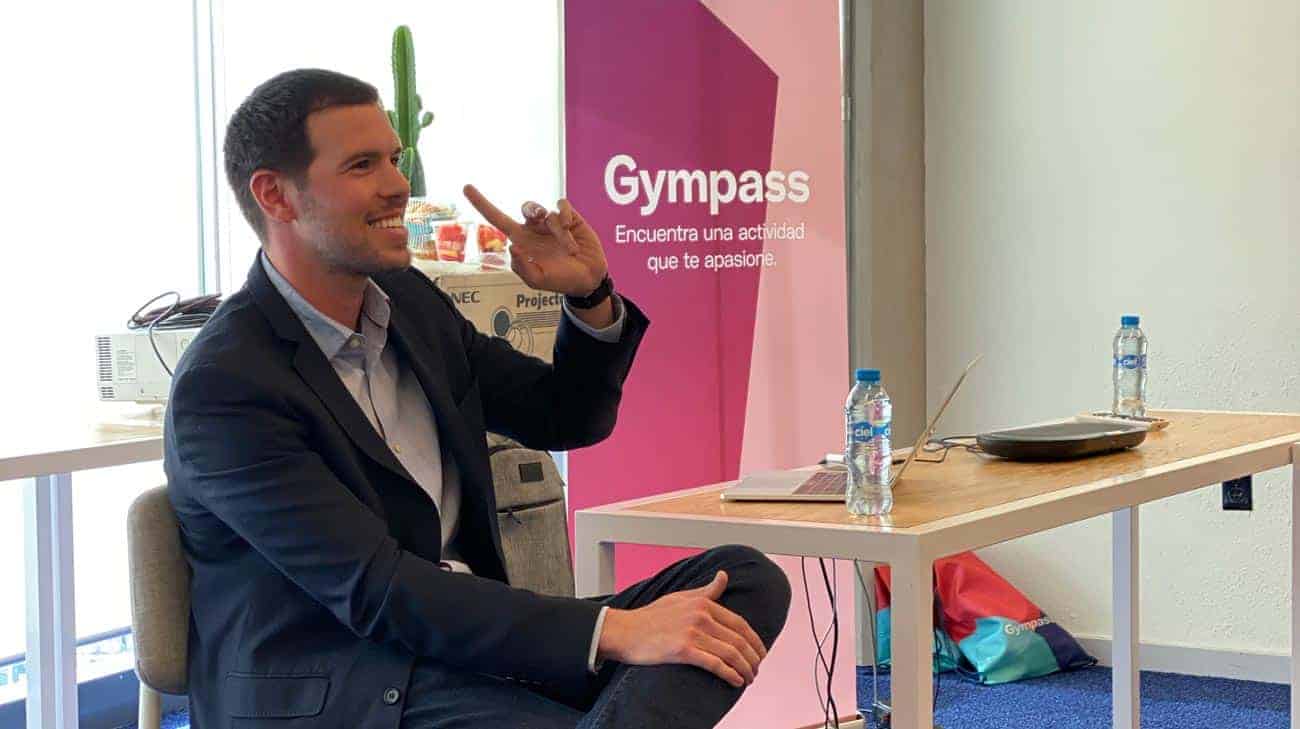Contxto – On the road to artificial intelligence (AI) each step must be taken with a delicate sensibility for emotional intelligence. Or at least that’s the challenge before one of Brazil’s fastest-growing unicorns.
It has been just shy of two months since Gympass—the Brazilian fitness marketplace scaleup—announced it had bought Flaner—a Portuguese AI and machine learning tech company.
Related article: Brazil’s Gympass gets spotted by Gym Plus as the startup tries to lift the European market
According to the CEO of Gympass Mexico, Lucas Melman, in conversation with Contxto, the Brazilian scaleup’s team was so delighted with Flaner’s work as an outsourced hire, that they were compelled to buy it up.
Hence, the acqui-hiring. Although come to think of it, given the order of events, it should be more like “hi-cquiring”.
But now the real work begins.
Gympass’ timeline is simple enough. The first quarter of 2020 will be spent incorporating the Flaner team into the company, as well as carrying out tests with their newly purchased Portuguese tech across their much larger global marketplace.
For instance, since Mexico boasts a healthy 23 percent of the company’s sunk investment, a lot of AI testing will go on to happen there.
Incorporation incorporated
With 2020 hindsight, Gympass may well come to remember its prior expansion as a rather easy phase.
Initially, growth consisted of entering new markets, drafting out alliances, and if needed be, buying out competitors. Nevertheless, these new global teams worked relatively autonomous way.
Each did their own thing in their own marketplace, following the mothership’s recipe book for success.
Those were also the days of the relationship during which Flaner was working as its own company alongside the exercise unicorn. Not anymore.
Now, some difficult questions have arisen from the thus far much-celebrated acqui-hire. Perhaps, chief amongst these is not so much about the tech, but rather about the handling of a very specialized team, whose skills will be required across the board and across time zones.
Indeed, the incorporation of Flaner may well come to grate against Gympass’ much flaunted autonomous and flexible corporate culture.
Related article: The dictatorship of happiness. How Gympass will struggle to keep its feel-good corporate culture
The questions to be resolved during Q1 2020 will determine the Brazilian startup’s future path and reputation. Namely:
- Can the company conciliate its flexible work approach across time zones with a need to specifically integrate one team with the rest of the global network
- Will the Portuguese personnel be compelled to move—perhaps to the Americas—in order to secure their future growth in the company?
- How will Gympass address any concerns and tensions which will inevitably arise from the process of incorporation?
- Considering the answers to the above questions, will the Flaner team survive as a discrete unit or will it have to be gobbled up by a new and improved “AI Department” well within the bowels of its parent corporation?
These are not just questions for Gympass, but for any startup or founder looking to scale their business model.
It all comes down to this maxim: will an increase in quantity go on to affect quality? It is an age-old question without a clear cut answer.
AI; what is it even for?
Therefore, the final goal is for Gympass to pull off a bit of a scaleup magic trick. The idea is for the company to continue its aggressive expansion without sacrificing any of the customer service it has strived so long to perfect.
But beyond the internal issues that the Flaner episode might throw up, in terms of Gympass’ business model, the correct incorporation of AI may well become the crucial tool for its bid for world domination.
You see, what this tech does is something of a paradox. With enough data points (achieved through a large and expanding marketplace in this case), AI is able to start discerning interesting and micro-level patterns. These can help a company like Gympass adapt and thrive in a changing marketplace.
One of Gympass’ principal preoccupations is to keep up with evolving “cultural trends”—in the words of Lucas Melman—. This means finding out whether the market is evolving from, say, Crossfit to knitting, all in real-time.
This is the magic of machine learning. It is a kind of instant opinion poll without the user having to answer anything themselves because their very actions are even clearer answers to the questions a company like Gympass is asking.
This kind of “micro-polling” could well propel the Brazilian unicorn to ever greater heights… if it can only keep their own house in order.
Related articles: Tech and startups in Brazil!
-AG





